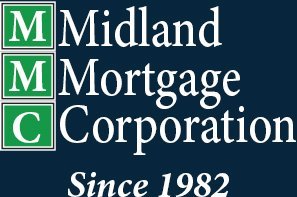
Are you thinking about a conventional loan for your upcoming home purchase? When it’s time to buy a new home, it’s a good idea to consider all of your available options. If you are a first-time homebuyer, you may find all of the various terms and loan types a little overwhelming. At Midland Mortgage Corporation, we want to help you wade through the loan options to determine the ideal loan to meet your unique needs. Keep reading for the details on a conventional loan to find out if it’s right for you.
What Are Conventional Loans?
As the most popular and common home financing loan, conventional loans do not receive any backing or guarantees from the government. Instead, private lenders back the conventional loan, and the borrower usually pays the mortgage insurance. In most lending situations, terms for conventional loans are 15, 20, or 30 years.
While a conventional loan has greater flexibility in its terms, most people consider it a riskier loan option because it doesn’t have the backing of the federal government. Borrowers who take out conventional loans tend to make larger down payments and are secure financially with low default risk.
How Do You Qualify For A Conventional Loan?
The requirements to apply for a conventional mortgage are more stringent than government-backed loans. For example, most conventional loans require a credit score that is no lower than 620, while 740 is the minimum score necessary to get a reasonable rate.
You’ll also need to pay a down payment that is larger than the money-down necessary for many other loan types, such as the Federal Housing Administration (FHA) loan. In some cases, you will need as much as 20% for the down payment for a conventional mortgage, while an FHA loan requires only 3.5%. In addition to a larger down payment, you will typically need to pay for mortgage insurance, origination fees, and appraisal fees out-of-pocket at closing.
What Are The Different Types Of Conventional Loans?
The two types of conventional loans are the conforming conventional loan and the nonconforming conventional loan. The amount you can borrow using a conventional mortgage depends on the type you choose. Here are the differences:
- For a conforming loan, the Federal Housing Finance Agency (FHFA) sets the loan limits. The current maximum for 2020 is $510,400 for one-unit properties in most counties in the U.S.
- For a nonconforming loan, individual lenders have the freedom to set limits for the loans, including for jumbo loans, which they typically cap at $1 million to $2 million, depending on the financial situation of the borrower.
Benefits Of A Conventional Loan
While the qualifications are more rigid, many borrowers who are in good financial standing appreciate the benefits of a conventional mortgage, including:
- Lower interest rates
- Fast loan processing
- Diverse down payment options
- Various term lengths
It’s for these benefits that conventional loans remain a popular choice for today’s homebuyers and can be the wisest loan option as long as the borrower has good credit and money available for the down payment.
Let our counselors at Midland Mortgage Corporation help you to determine if a conventional loan is right for your situation. Connect with us online now to get on the best path to your next home purchase.

















